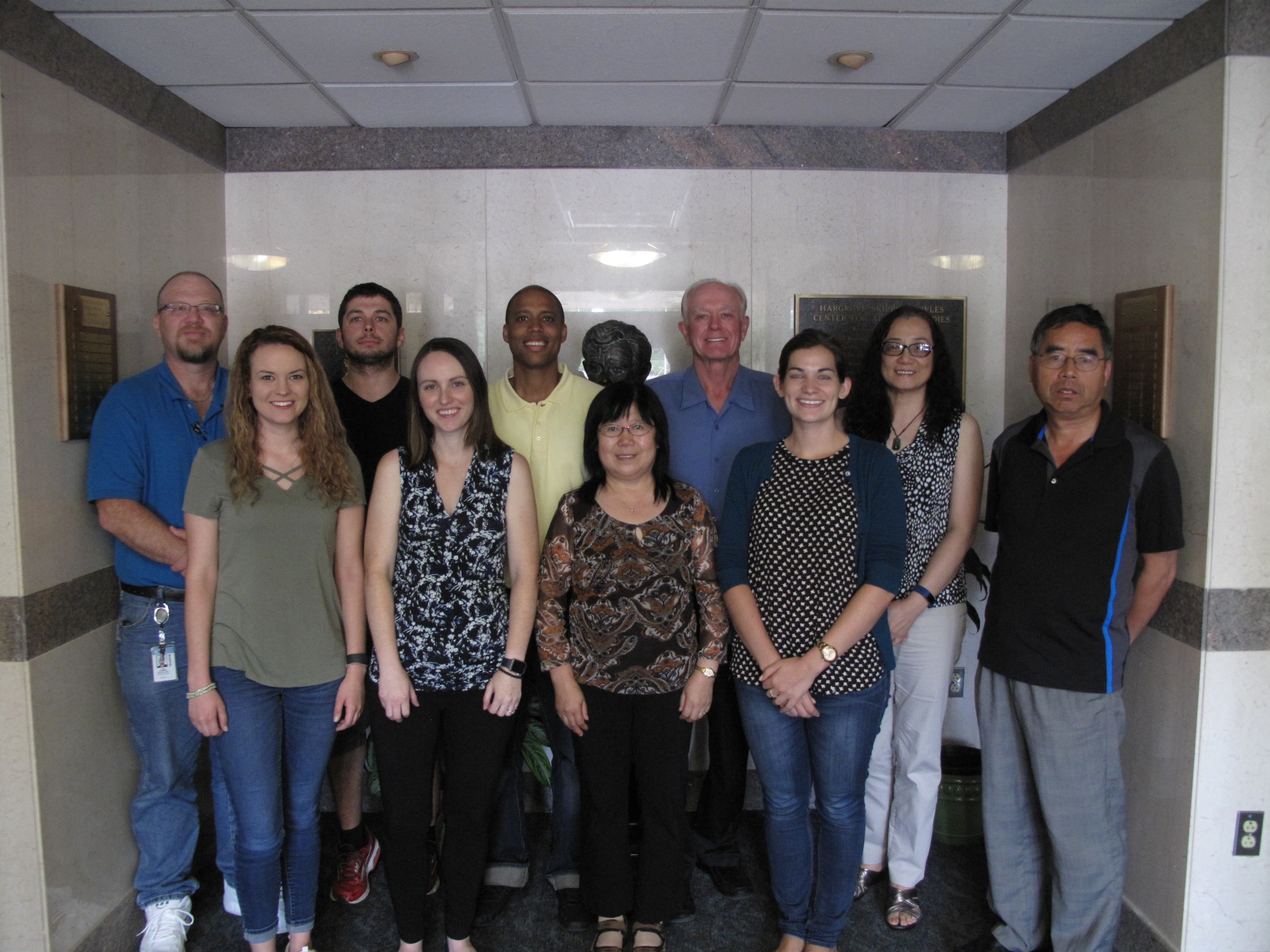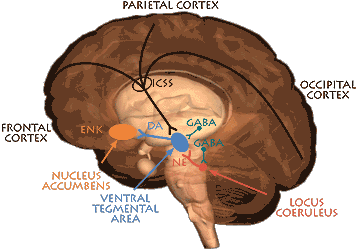Preclinical Molecular Pharmacology Research Team

Back Row from left to right: Jay Campbell, Ryan Vetreno, Leon Coleman, Dr. Fulton Crews and Wen Liu
Front Row from left to right: Lauren Larison, Colleen Lawrimore, Liya Qin, Veronica Massey and Jian Zou
Research Contributions
- Discovered that chronic alcohol leads to supersensitive glutamate NMDA receptor responses, particularly glutamate-NMDA mediated delayed neuronal death and nitric oxide formation. Chronic alcohol abuse is known to cause brain damage commonly referred to as “wet brain” by alcoholics. Cerebral cortical damage reduces the cognition and spirituality important for recovery. Improved approaches to protect the brain during alcohol withdrawal will contribute to better treatment and recovery.
- Discovered that membrane adaptations during chronic ethanol treatment are brain region specific.
- New studies are using genetic and gene delivery approaches to better understand the development of alcoholism and how treatments could be structured to improve recovery rates.

Alcohol activates the ventral tegmental -dopamine (DA) reward pathway. Humans generally activate this pathway with cognitive and spiritual activities through cortical connections. Alcoholics damage the cortical connections and their rewards and behavior become dominated by alcohol. Our laboratory is working to learn how alcohol damages the cortical connections necessary for good sensations associated with good citizenship and recovery from alcoholism.
Current Research
- Ethanol Effects On Neurotransmission
- Molecular And Cellular Pathogenesis Alcoholism
- Neurodegeneration and chronic drug-induced changes in brain signaling pathways
Recent Research
- Gene Delivery of Tyrosine Hydroxylase Using Adreno-Associated Virus and Adenovirus Vectors
